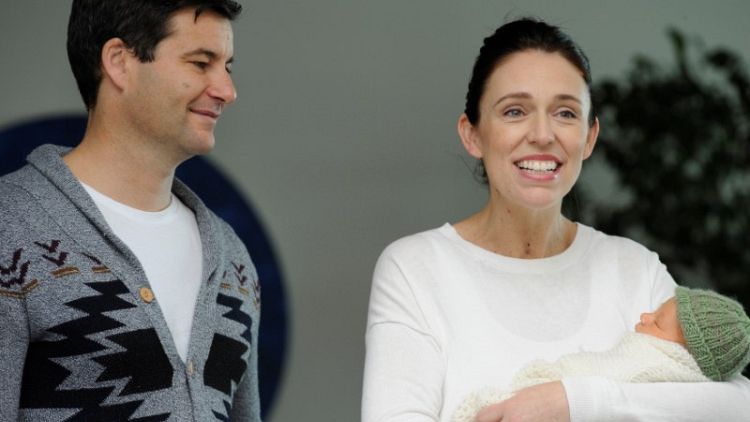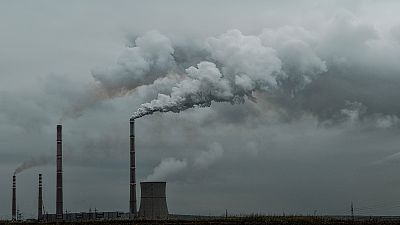By Charlotte Greenfield
WELLINGTON (Reuters) - New Zealand's youngest-ever prime minister, Jacinda Ardern, has seen her popularity soar at home and abroad, but now must deal with a growing economic problem as gloomy business confidence heads in the opposite direction.
Companies say measures such as a 5 percent increase in the minimum wage, a looming ban on foreign homebuyers and lingering red tape around immigration in the midst of a skills shortage are increasing costs and forcing delays to investment.
Business confidence is at its lowest in seven years, and has been in free-fall since Ardern won elections in September - a stark contrast to the steady sentiment in Australia. The risk, economists say, is that the mood affects investment plans and, ultimately, economic growth.
"There's been a raft of legislative changes that have moved so rapidly," said Adam Cunningham, the director of Village Accommodation, a chain of hotels and hostels. "The message is pretty disconcerting and demotivating."
For a graphic on NZ business confidence hits 7 year low, click https://reut.rs/2IYlZ4M
Cunningham said he would have to raise prices and slow hiring to cover NZ$850,000 ($578,510) in extra labour costs over the next few years. The Labour-led government raised the minimum wage to NZ$16.50 from NZ$15.75 per hour in April and plans to increase it to NZ$20 by 2021, which Westpac Bank estimates would raise nationwide labour costs by 1 percent.
"That's a lot of money and I don't think there's anyone out there that thinks we've got that hidden in our back pocket," Cunningham said.
New Zealand's Treasury forecasts the economy will average about 3 percent annual growth for the next few years, expanding as much as 3.8 percent in the year ending June 2019. The economy grew 2.9 percent in 2017.
But many economists point out that if investment tapers off, so will growth. The New Zealand Institute of Economic Research, which produces the business confidence survey, expects 2.5 percent growth this year, while ANZ and Westpac Banks peg growth at 2.6 percent and 2.8 percent respectively.
The business community's outlook contrasts with the approval ratings of 37-year-old Ardern, whose rapid political rise to end a decade of centre-right National Party rule was dubbed "Jacindamania" across social media.
Ardern, who gave birth to her first child in June, has a net positive performance rating hovering just below 60 percent, up from around 40 percent during the election. It is the highest rating of a leader from either party in the last four years.
Many of Ardern's plans affecting businesses are the fulfilment of a campaign vow to "make the economy work for all New Zealanders" and curb rising inequality.
Little of the country's recent economic boom has trickled through to workers; wage growth has remained sluggish despite soaring housing costs.
"There's a moral issue where if you're working full time you should be able to support yourself and your family," said Richard Wagstaff, the president of the Council of Trade Unions, which supports wage increases. "We’re looking to right that balance."
The government is also facing growing turbulence as negotiations with public workers increasingly lead to strikes.
Nurses are planning a work stoppage this week for the first time in 30 years after rejecting an NZ$520 million offer that included pay increases.
More than 4,000 public officials from the Inland Revenue Department and Ministry of Business, Innovation and Employment held a two-hour strike on Monday, and the union representing teachers says primary school educators are planning a strike in August.
For a graphic on NZ consumer confidence tracks business mood, click https://reut.rs/2Nwffyz
FILTERING THROUGH
Signs are emerging that businesses' pessimism is filtering through to actual investment plans and expected profits, which could hamper growth. Just 2 percent of companies surveyed in the quarter that ended in June said they planned investments, down from 17 percent at the start of the year, according to data from the New Zealand Institute of Economic Research.
Merv Avery, the head of farm equipment dealer TransAg, said he was struggling to move more than a million dollars' worth of machinery, which he took out a loan to cover. One problem, he said, was that farmers held off on buying items like tractors as they anticipated costly pollution regulations from Ardern's Labour Party and its support partner, the Green Party.
"We're stuck with $1.5 million and repaying interest," he said.
Even in the construction sector, which looked set for a windfall - Ardern's hallmark policy was to increase the housing supply - there are grumbles because of delays in permits and a construction worker visas.
"I'm trying to go overseas to bring people over and I can't do that until I've got more certainty," said Kevin Everett, the Auckland-based director of Building Recruitment, which sources workers from Britain, South Africa and the Philippines.
Some analysts, such as ASB Bank economists, predicted a central bank rate increase would be pushed from August to November next year and say a cut cannot be ruled out.
To be sure, an independent Parliamentary analysis has shown that business confidence sunk under the previous Labour government despite robust growth.
Economists said the concern, then was that gloomy sentiment would manifest as a "self-fulfilling prophecy" for companies.
"They may put off investment decisions … they spend less, and then that filters through to lower GDP," said Jeremy Couchman, senior economist at Kiwibank.
For a graphic on NZ vs Australia business sentiment, click https://reut.rs/2IZ6I41
($1 = 1.4693 New Zealand dollars)
(Reporting by Charlotte Greenfield; Editing by Marius Zaharia and Gerry Doyle)



